- Home
- Nancy Bush
No Turning Back Page 2
No Turning Back Read online
Page 2
“Let’s get outta here,” Brad murmured.
They backed up slowly, twisted, hit the trail at a half gallop and tore away as if the devil were at their heels, which he very well might be.
“Don’t tell,” Jesse warned.
“No . . . no . . .” Brad’s teeth were chattering. Not a good sign.
“I mean it. We could get blamed.”
“For killin’ some guy?” His voice was an octave higher than usual. “Oh, come on!”
“I’m not gonna chance it,” Jesse muttered. Another scene unfolded inside his mind. An imagined one, but the facts were real enough. His father taking aim, prepared to shoot to kill, his rifle pumping rapidly, bullets zinging into human flesh.
The cold breath of reality fanning his neck, Jesse tore away from the downed body of Barney Turgate. He ran and ran, Brad at his heels, and with the fervor of a religious zealot vowed never to smoke again.
A guy like him needed all the lung capacity he could get.
Chapter Two
“. . . and then I told him he couldn’t go. I said, ‘You can’t go,’ and you know what Josh did then? He swore at me!” Deanne Martin said with controlled fury. “So, I told him, ‘Get in the car.’ He just stared at me. Never moved a muscle. And his friends just stood around and smirked.”
Petite and well groomed, Deanne smoothed back her short brunette hair, crossed her legs beneath a sleek, black skirt, and waited, lockjawed, for a response. Her gaze rested on Liz Havers, who mentally compared herself to the furious woman and, as ever, came up short. Liz’s hair was light brown, her eyes an unremarkable blue, and she spent most of her time in jeans and cotton shirts.
But not today. Not on work time. Carefully schooling her features, Liz glanced from Deanne to her son, who sat in a chair as far away from his mother as possible. As a child psychologist, Liz spent most of her time listening to similar problems. The boy, a rebellious teenager over six-feet who had to weigh at least twice as much as his mother, glared at Liz behind eyes dulled with disrespect.
“You shoved me,” he reminded his mother sullenly. “You said, ‘Get in the car,’ then you shoved me at the car and I banged my head.”
“And then Josh just left with those boys,” Deanna finished, her gaze fixed on Liz. “I’m lucky he agreed to counseling.”
Liz glanced at Josh. He wore a baseball cap backward over hair dyed a shade between red and magenta. She’d counseled a lot of kids his age. There wasn’t much that surprised her anymore, though once in a while some creative youngster did manage to make her jaw drop. Once in a great while.
“What’s going on, Josh?” she asked him.
“Nothin’.” He glared at her before turning his attention to the straggling laces of his black Nikes.
“His dad’s coming to pick him up on Friday and Josh is going with him no matter what he says.” Deanne’s voice rang out. Josh shot her a filthy look.
“What are you and your dad doing this weekend?” Liz asked him.
“Nothin’.”
“Nothing?”
“Nothin’.” He hesitated. “Besides, it’ll be stupid, whatever it is.”
Deanne shot Liz an exasperated look that said, See what I mean!
Communication breakdown. “What’s a typical weekend with your father like?”
Josh rolled his eyes and refused to answer. Deanne seemed to take this as a cue to belittle her ex and, as a by-product, Josh. “Robert spoils him. Buys him all kinds of gadgets and just plops him in front of the TV. He never takes him anywhere.”
“You don’t know!” Josh exploded.
“Well, it’s true.” Deanne rushed on to Liz. “Josh used to love the arts. Theater, music, painting. I’ve got pictures he made when he was in kindergarten that are just amazing. You’d be astounded.”
The past tense of that remark echoed throughout the room. Her regret was so deep, Josh couldn’t help but make the comparison: good, then; bad, now.
“But his father doesn’t appreciate the arts. Business, business, business. And football.” Her lip curled. “He could name you every player on every NFL team, but he can’t remember birthdays and he never remembered his own anniversary! At least that’s one date he can forget now. I certainly have.”
“Can we go?” Josh demanded in a loud voice.
Before Liz could respond, Deanne glanced at her slim gold watch. “We’re five minutes late already. Great. Now I’ll be in trouble at work.” Gathering up her purse, she said, “Same time next week? Oh, I’ll have to call you. I’ve got some important meetings. I might have to reschedule. Josh, hurry up!”
She practically stepped on his heels as he sauntered out of Liz’s temporary office. Before she disappeared into the hallway, Deanne shot Liz one more glance of Can you believe this? as if she were the only parent on earth who had ever spawned such an undesirable offspring.
Liz sighed, closed her eyes, and ran her hands through her shoulder-length hair. She itched to get out of her cotton slacks and blouse and into a pair of well-worn jeans. She had so much to do, so many problems of her own to solve, and Deanne and Josh’s troubles brought them all too close.
Switching off the lights to her office, she sat in semidarkness, contemplating, though it was only ten in the morning. She had another appointment at two and a house call to make in-between.
Her job could be rewarding. Her job could be heartbreaking. So much of the time kids and their parents just couldn’t bridge the gap. Parents were frustrated; teenagers were anxious and insecure. A deadly brew with sometimes tragic consequences.
Josh just wanted things his way, and his mother wanted to punish his father. And so it went.
Locking the door, she left her nondescript office and drove through a torrential summer downpour to a drive-through coffee shop, a cute tucked-away place called the Coffee Spot, then to the little house she’d purchased this past spring. Balancing her coffee, purse, and a briefcase with notes and papers, she dashed through the rain into the kitchen. Small and cozy, it was a haven. Her favorite spot in the whole world.
Dropping everything but the coffee, Liz stood at the front window, passing the scorching paper cup holding her latte from hand to hand. Newly hired by Woodside’s school district, she would start as Woodside High’s resident psychologist this coming fall. For now, she saw a trickle of patients whose parents were desperate for some kind of counseling right away. It helped her limp financially through the summer, though producing a steady income was the least of her problems.
No, all of this was just window dressing, for Liz Havers was on a mission.
Squinting her eyes, she gazed inward to her own troubled soul. Too much time had passed. She’d left it all too long. Yet she’d been working for this half her life.
My son. My sixteen-year-old son.
She’d moved to Woodside to reconnect with the child she’d given up for adoption not long after her own graduation from Woodside High.
She breathed deeply several times. Air in, air out, air in, air out. Relax. Nothing else could have dragged her back here. Not even the pleas of her best friend, Kristy Fielding, who was having her own personal difficulties and was raising a teenage daughter.
The opportunity to meet her son face-to-face both thrilled and terrified Liz. With more trepidation than expectation, she’d plunked down in Woodside two months earlier and begun the mine-filled process of reconnecting.
She knew where he lived. She knew his father. And she knew also how negative her reception was going to be when that meeting came off.
Her heart jerked painfully. She’d made a lot of terrible mistakes, but she’d been seventeen, for crying out loud! Two heaven-filled weeks with a man nearly a decade older than herself and she’d set herself on this unlucky course.
Briefly, she let her thoughts touch on that insane time and the wild love she’d felt. It had been infantile, delusion-ary, and just plain wrong, but the intensity of it could still take her breath away. He’d been so handsome and reluctant and sou
l-sick with longing and loneliness. A lethal combination. A seductive brew. A chemical explosion destined to drug her own level-headedness and send her down destruction’s path.
Luckily, she’d made a life for herself since. She’d worked hard to get over the past and become the woman she was today.
She hoped to hell that counted for something.
Rain pelted against the windowpanes, an all-out storm. Liz passed the cup again and stared into the gloom. June twenty-first. Summer solstice. The longest day of the year and the most god-awful. Lashing winds, fitful rain, leaden, pewter skies, and a general sense of doom.
One could really learn to hate the Northwest. Though she’d grown up here, the last sixteen years of her life had been spent in Arizona and Woodside’s weather had become a distant memory. Now it was back full-force, but Liz felt more disinterest and apathy than hate. It just took too much energy to loathe something beyond her control.
Should today be the day? she asked herself, mouth dry. Should today be the day she met her son?
Her phone buzzed, making her jump. Silently berating herself, she snagged it up, grimacing through the dining room windows to the torrent beyond.
“Liz?” a young, familiar voice asked.
Liz smiled. “Hey, babe, how’re you doing?” Tawny, her friend Kristy’s daughter, who just happened to be one of Liz’s most favorite people on earth. She passed the latte once again. Lord, the cup was hot. She should have picked up a cardboard jacket for it.
“I’m just kind of hanging around,” she responded, sighing hugely. Fifteen-year-old Tawny Fielding sighed a lot these days. “It’s so dark.”
“Summer’s a blast, huh?”
“Just look at it!”
“I am. I am.” Liz brought the cup to her mouth, attempted a sip of milk-laced coffee, and scalded her lips and tongue. She sputtered and fought a moan. Sometimes the Coffee Spot went overboard on the steamed part, blasting supercharged, boiling atoms into the espresso and milk and turning it into a nuclear explosion. Criminy, the stuff could melt the planet!
“Are you okay?” Tawny asked, as Liz choked and fought back a string of swear words.
“I just burned the top layer of my tongue off.” Turning from the window, Liz gently probed her lips and tongue, knowing she’d lost the ability to taste for the better part of the day. The hazards of preoccupation. Her brain just wasn’t engaged. “How’s your mom?”
Her friend Kristy had come down with some mysterious plague that kept her constantly feeling low and nauseous, as if she suffered from chronic flu. She had yet to be diagnosed, but Liz wondered if it might not be depression. The local weather could do it to you all on its own.
Kristy, who’d stayed in Woodside while Liz had fled from her past, had fallen in love with the first man she’d ever kissed and remained a native Washingtonian, constantly raving to Liz about the area as if it were Eden itself. Lovestruck Kristy married Guy Fielding, her first and only lover, and bore him Tawny, whose name was some kind of family moniker that had made Liz wonder from the beginning how sound Guy really was in the first place. It was a bitch to have her suspicions founded: On the eve of Kristy’s thirtieth birthday, Guy ran off with an eighteen-year-old who turned out to be already pregnant with a baby girl.
The bastard had probably named her Tawny II.
“She’s okay,” Tawny said.
“Is she going to the doctor again?”
“She went yesterday. She’s . . . tired.”
“Tell her I’ll stop by this afternoon. I’ve got to see one of my rebels and my last appointment’s at two. Then I’m free.”
“Okay.”
“Maybe I can bring takeout by? Pizza, sushi, Mexican?”
“Pizza’d be great.”
“Okay, I’ll see you later.”
“Thanks. Bye.”
Liz disconnected. She was currently seeing several rather antisocial customers. Tutoring might be the proper word if she were a teacher. At any rate, one of them, Brad—The Brad Influence, a name one of his buddies’ moms had chosen for him—was on today’s agenda.
Gathering her purse, a woven bag she could sling over her shoulder, Liz slipped into tan suede toeless slip-ons, her most loved faded blue jeans, a beige tank top, and a denim overshirt. Sure, she liked to dress down, but she’d learned kids responded to her best if she was just herself.
There was, however, the rain. By the time she’d dodged puddles as she ran for her car, a black Miata convertible—top up today—her toes were squishing against the leather soles, the tan suede stained a ruinous dark brown.
A trip to the grocery store for nonperishables and she was on her way to Brad’s home, a dark blue ranch with a cracked picture window and a diagonal of three diamond-shaped cutouts across the face of the garage door, the height of sixties fashion in the modern home. Rain ran sluggishly from a gutter that hung half a foot lower on the northeast side of the house, creating a pool on the grass below that was trying hard to spill over the edge of the cement drive. So far, the one-inch lip held the flood back, but as Liz climbed from her low-slung car and dashed for the porch, she calculated the driveway would be inundated by the time she ran back to the Miata.
She knocked loudly. Brad’s mother was supposed to be home. Liz wasn’t about to visit one of her students at home without another adult present. She’d been scammed by the best of them—kids with too much time, brainpower, and energy and too little self-esteem, recognition of cause and effect, and general sense of purpose.
They could be devilishly clever and oh so destructive.
“Hello, Mrs. Barlow,” Liz greeted Brad’s mother when she answered the door.
“Hi yourself,” the woman greeted her. She and Liz were already well acquainted, though they’d only known each other two months.
The house smelled like dogs. Good reason. Two friendly-looking golden retrievers lounged in the front room alongside Brad, his younger brother and sister, and a clutter of video games, one of which was currently on screen. The sister and brother were playing and Brad was watching. Sort of. He seemed to be staring off into space, a throw pillow clutched to his chest, caught in some reflection of his own, which was unusual for the cheerfully reckless Brad Liz had grown to know.
“Come on, Brad. Ms. Havers is here and I don’t want to waste my money on you watching that stupid game.” Gina Barlow snatched away the pillow and, like a sleepwalker, Brad climbed to his feet and led Liz to a room off the kitchen that was designed to be something between a laundry room and a den.
Liz perched herself on what looked like a chair from a dining room set and Brad sat behind the desk in a swivel rocker. Gina left them alone, half-closing the door behind her. She knew Brad’s counseling sessions were necessary, but she couldn’t help resenting them a little. Most parents felt the same way, defensive of their own parenting skills because their offspring’s behavior reflected poorly on them—or so they felt. Sometimes the way a child chose to be was their own decision, no matter what. It crossed all socioeconomic boundaries. But try telling that to an overworked, overstressed mother with no foreseeable options.
“What is it, Brad?” Liz asked.
He surfaced, blinking. “What?”
“What’s bothering you?”
“Nothin’.” A pause. “What’s botherin’ you?”
“You seem kind of preoccupied,” Liz responded, ignoring him. Brad was great at counterattack, but not as swift at long-term defense. If she kept chipping away, eventually she could usually get to the root of things.
“I got things to think about.”
“Anything you can share?”
He snorted. “Uh-uh.”
“What have you been doing since school’s been out?”
“Nothin’.”
“Seen your friend Jesse?”
It was a simple question, not meant to require more than a yes or no response, but Brad startled, as if he’d been pinched. Jesse was Brad’s good buddy, by Brad’s own accounting, and on a good day Brad
would tell her the “really cool stuff” he and Jesse did together; on a bad day, he’d simply grunt acknowledgment at his friend’s name.
But today he’d reacted with nervous jitters, his teeth tearing at the corner of his thumbnail—heavy concentration for Brad.
“Yeah,” Brad finally answered warily.
“So, what happened?”
“What do you mean?”
Liz spread her hands. “What did you do together?”
“Mom!” Brad suddenly yelled. “Can I have a bowl of ice cream?”
“No!” came the muffled response.
There followed a verbal skirmish between mother and son in which the rules appeared to be that neither would take one step closer to the other. They were content to scream from a distance until one ran out of breath. Gina Barlow folded first, with Brad still yelling at her to no avail.
He subsided into glowering silence. Intuition enfolded Liz, a familiar sensation that was nine parts deduction and one part basic understanding of human nature. Teenagers weren’t so different from adults if you took a little extra time to listen.
“Something happened with you and Jesse,” she guessed. “You’re worried and you don’t know what to do, whom to turn to.”
“Shut up!” Strong words directed at her, even for Brad.
“Is it something you did?”
“No!”
“Something Jesse did?”
“No! You don’t know anything!”
“Why don’t you tell me?”
“I—shit—no.” He struggled. “We didn’t do anything. Nothing! I’m not talkin’ anymore.”
“Maybe I should check with Jesse,” Liz suggested.
“You don’t even know Jesse.”
“I could find out from your mom . . .”
Expecting immediate, strenuous objections, Liz was surprised when Brad merely frowned. Anytime before when she’d mentioned meeting Jesse, Brad had gone ballistic. It embarrassed him that he was seeing the “school shrink,” and though Liz suspected Jesse knew all about it anyway—probably as a result of Brad’s big mouth—Brad was adamant about keeping them apart.

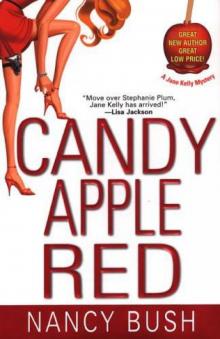 Jane Kelly 01 - Candy Apple Red
Jane Kelly 01 - Candy Apple Red Jane Kelly 03 - Ultraviolet
Jane Kelly 03 - Ultraviolet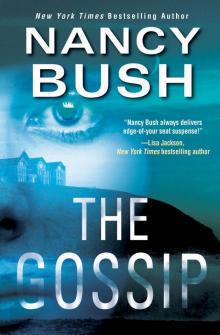 The Gossip
The Gossip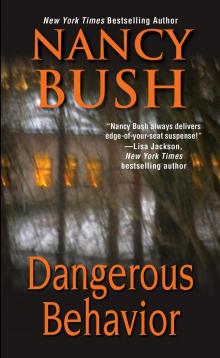 Dangerous Behavior
Dangerous Behavior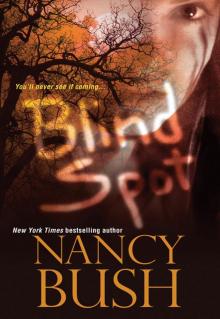 Blind Spot (2010)
Blind Spot (2010)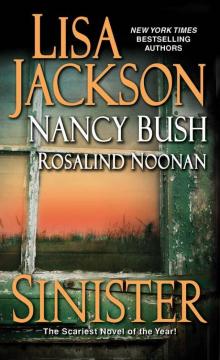 Sinister
Sinister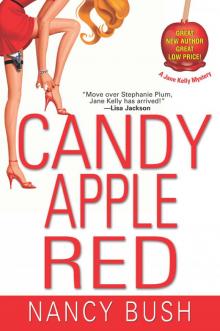 Candy Apple Red
Candy Apple Red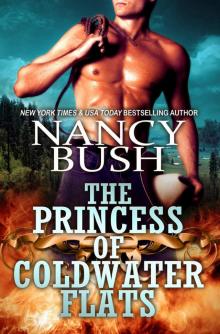 The Princess of Coldwater Flats
The Princess of Coldwater Flats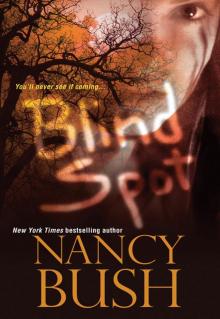 Blind Spot
Blind Spot Valentine's Child
Valentine's Child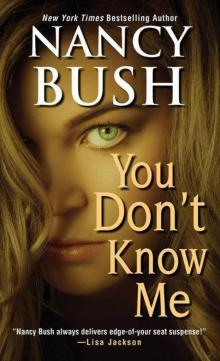 You Don't Know Me
You Don't Know Me Miracle Jones
Miracle Jones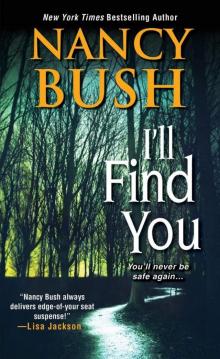 I'll Find You
I'll Find You Dear Diary
Dear Diary Jesse's Renegade (#3 of the Danner Quartet)
Jesse's Renegade (#3 of the Danner Quartet)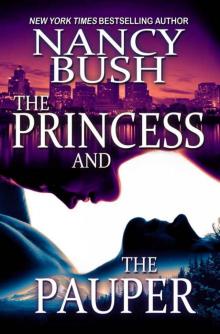 The Princess and the Pauper
The Princess and the Pauper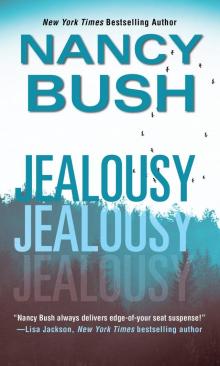 Jealousy
Jealousy Hush
Hush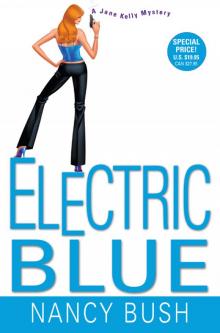 Electric Blue
Electric Blue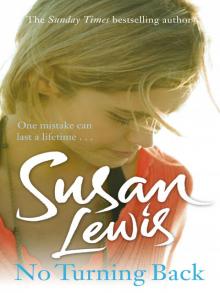 No Turning Back
No Turning Back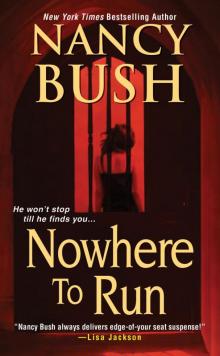 Nowhere to Run
Nowhere to Run Ultraviolet
Ultraviolet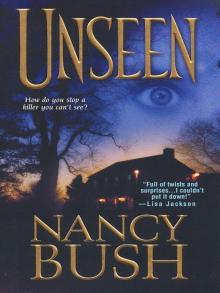 Unseen
Unseen Lady Sundown (#1 of the Danner Quartet)
Lady Sundown (#1 of the Danner Quartet)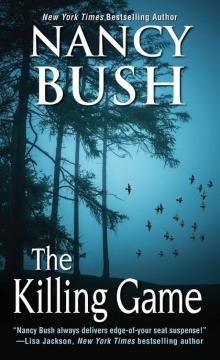 The Killing Game
The Killing Game